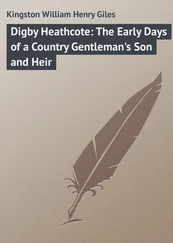Another thing I do — I always remember to bring along a coat hanger.
This is the entrance hall. We are diseases entering it. We are three diseases. We differ among ourselves: which of us shall be the reigning sickness in this grand old body — the muff, the muff’s man, or I? The corners of the ceiling have risen since I saw them last. Note please the grandeur of the stair. Because it curves. Curvature has grandeur. The pillar is Corinthian. And see the lathe-carved gewgaws. Now then if Pearson has the power to predict for streets and houses, for all sorts of property, reading their futures from the patches to their paint and shingles, couldn’t he… couldn’t he do it for a face for instance, maybe, or an elbow — Fender’s own, he realized, was caked — for an employee? This is a window seat. You don’t find many of these any more. And Fender sat heavily. Of course one’s nose seldom got its name in the papers — no clue there. Kids love window seats. The seats come up. Lids — look. Lots of storage underneath. But Fender didn’t budge, mastered by his overcoat. In Pearson’s face, morning after morning, when full of lordly entrance he had leaned over Fender’s phone and basket, what had Fender seen but just such a judgment? There’s no one to help you, Fender, you have no history, remember? Log in the stream. The house was so empty, so silent, he could hear them breathing, and their three breaths, in lease to the spirit, drifted across their collars and spilled on their sleeves. The poisons of pneumonia are heaviest. Fading in her furs like a mist in a forest. So the Agency would fold; perhaps it had, for it was bound to — when had they sold something? And here is Ringley — the walrus-jawed. And here was his responsibility. He rose wearily. Sizes! He stretched out his arms. A tape measure magically spanned the doorway. Unkinked, the masterful metal presided.
And this is the living room. See the high windows. He drove up the shades and the sun flashed through, frightening the woman in her furs, whose hairs, Fender now noticed, were split at their ends and raggedly combed. Fine floors. He stamped his foot thunderously, flouring snow around his shoe. Should a mouse run up the wall or a wasp appear from the attic, what would she do — disappear in her skins? He ran his pencil rat-a-tat-tat along the radiator. Nothing beats steam. He placed a reverent finger on the paper. Fleur-de-lis, he said. It wasn’t a mew she made, but she moved to touch her husband. Royal, he said, and rapped the wall with a knuckle. It was true: he sold badly; he was a braggart and a liar. He had cheated his clients, often dodged taxes, falsified documents, behaved like a fool in front of Isabelle, like a child, like a… Were they coming along? What did they want, for the love of god, what did they expect? When you think what the owner’s asking, he said, twisting his neck… well, it’s a shame. Romance, was it? was that the cat at the bottom of the basket? Can you recall those better days, madam and mister, when the chandeliers blazed here, and down that stair the hostess dragged her gown? With all the sliding doors drawn in, the Ringleys danced.
This used to be called the parlor. They read in here on Sundays from edifying books and during the week practiced the piano, but you could use it as a family room: hobbies, card games, the TV, toys — have a regular romp. Because of a torn blind, a splintery tree. He turned slowly, lifting his arms. Isn’t it wonderful — what a place for kids! The left hand had come from the muff and was caught now on the coat sleeve of the muff’s friend and male companion. Very suddenly there were alarming quick steps on the porch. Fender lifted the front shade and a small boy turned toward him and stared in, an icicle every bit as big as he was cradled in his arms. By god, Fender gasped, running toward the door, the nerve! The boy was standing in the snow looking at the house apprehensively when Fender burst upon the porch. Whatdoyoumean, whatdoyoumean, he yelled, as the child made off. Those icicles, boy, you ought to know, they come with the house! They’re a part of the property! Fender gave chase, but at once lost his quarry behind the garages. The child moved quickly, and in the deep snow and on the slippery drives and terraces, Fender, awkward under the best of circumstances, fell twice. Worst of all, the thief had held on to his prize. Fender returned slowly, winded, brushing his coat and trousers. The way kids carry on these days — they’ve no respect — why they’ll do anything — imagine — right under our noses — with our sign out front, too — THE PEARSON AGENCY, big as life — but what do they care? not these kids — they steal the signs — you’d be surprised. Fender shook his head. By george what nerve, he said. However when Fender looked up he could not see either of his clients, and after a moment when his eyes sought them wildly everywhere, he discovered them entering their car, which almost immediately, though the rear wheels whined, moved rapidly off.
At home, for that is where Fender, in a panic, had taken himself at once, he first shoveled the walk. It was pleasant work, his body was accommodating, and its movements made him calm. He would frequently rest to watch his icicles, the whole line, firing up, holding the sun like a maiden in her sleep or a princess in her tower — so real, so false, so magical. It was his own invention, that image, and he was proud of it. The walk completed, he sat at ease in his window, examining them carefully from that side, observing their spiral rings and ridges, the cloudy, the grainy, the cellular places, as well as the fair new ice and its queer, surprising turns, the warts and dimples which appeared on some, the threadlike quality of others, in short, every particular of their formation, imagining himself suddenly to possess a most piercing scientific eye, cold and ruthless as a knife, yet in warmth and kindness as philosophic as a blanket, taking everything in and absorbing their natures as wholly as warmer weather one day would. The melting snow ran down them, cooling as it went, until, little by little, it froze, though a drop might collect at the point sometimes and make its escape from there. Across considerable distances they bent, on occasion, to touch, or they threw out lateral shoots like vines, with minuscule fingers eagerly crooked. When he saw the postman coming, Fender hurried out and stood in front, painfully screwing a smile on, terrified lest the man push by him suddenly and knock them off. Humbly he received his mail and when the postman seemed well on his way and there was no chance he might have forgotten something and turn back, Fender, worn and sighing, thought it safe to go in. He idly shuffled through the letters — bills, ads, nothing much. You’ve no job, Fender, he said, and you haven’t eaten lunch.
The beauty of the icicles was a sign of the beauty of their possessor, Fender thought. They were a mark of nature’s favor like fair skin, fair hair, blue eyes. Only the icicles mattered. What was lunch when he was nourishing the spirit? If he could grow them inside himself, if he could swallow them like a carnival performer and put their beauty in his body… He dreamed, but he was disturbed, fully and honestly anxious. The sun itself would destroy them, or they would be torn off in the night by the wind, or fall helplessly in the weight of their armor. But property endures…. Pearson doubtless had his cemetery lot all paid for. He would attend first to his last address — that would be like him. This crypt is the site of the great man’s grave. Within, a casket, bronze, with scrolling handles, holds a plastic coffin like a Thermos liner. Rolled in a sling of satin, even beneath the earth, in his hollow body cavity, the embalming liquids sway. Momentarily Fender didn’t give a damn; he put a kiss on the glass and saw the paper boy approaching. Ah, god, he would smash — Then Fender went to the door again to greet the boy with his best hypocrisy, but the boy passed sullenly, thank heaven, with scarcely a nod. He, Fender, would not be in the papers. No blue line would pass over him. But on the front page was a picture of a grimacing, pork-cheeked little girl no more than three or four who was the measure of an immensely twisted, knotty, threatening icicle like the root of a tree, and it did what it was meant to — it engulfed her. SOME PLEASURE IN ICE THAT GRIPS CITY. Egh. Disgusting.
Читать дальше












